Just Say ‘No’: Director Pablo Larraín Tells How Chile Got Rid of a Dictator
In his latest film, Larraín continues his examination of Gen Augusto Pinochet, this time looking at the campaign to oust him In his latest film, Larraín continues his examination of Gen.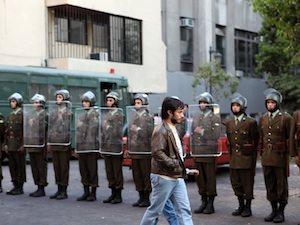
In 1988 after a 15-year regime characterized by human rights abuses, exile and the “desaparecidos” (victims of forced disappearance), Chilean Gen. Augusto Pinochet, under pressure from the United States, held a referendum on his regime. Every day for a month before the vote, the pro-Pinochet side and the anti each received 15 minutes of TV airtime to get their messages out.
Chilean director Pablo Larraín was barely a teenager at the time, but the referendum had a big impact on him. In his other films — “Tony Manero” (about a serial killer obsessed with John Travolta and the movie “Saturday Night Fever” at the height of Pinochet’s reign) and “Post Mortem” (about the military coup in 1973 that brought Pinochet to power) — Larraín sought to understand the dictatorship and its effects on the country.
In his latest film, “No,” Larraín continues that examination of Pinochet, this time looking at the campaign to oust him. The movie, which came out last year and is up for an Oscar this month for best foreign language film, stars Gael García Bernal as a slick advertising man recruited to head the “No on Pinochet” effort for the referendum. Rather than show the torture, tanks and tear gas of the dictator’s regime, Bernal’s character, René Saavedra, goes a completely different way — his message, complete with rainbows and jingles, aims to tell Chileans they will be happy if the No side wins.
Larraín sat down with Truthdig to talk about Pinochet, how much the No campaign affected him and Chile, and the importance of democracy.
Emily Wilson: How did growing up with Pinochet affect you?
Pablo Larraín: It’s hard to say because I grew up in a very safe environment. I was never exposed to violence, and then when the dictatorship was over I was 14, maybe just 13. When the referendum happened, I was 12. Pinochet left in 1990. I do think I grew up in a country that during the dictatorship and after, it was totally divided by the fact of the dictatorship and that division created a lot of anger among us, and a lot of other things I wouldn’t consider positive. When I became an adult, I started having questions about this and since I’m a person who wants to make movies, I thought it was reasonable to try and get close to those days and that idea throughout my work.
Wilson: What drew you to this story of the referendum and someone working for the No campaign?
Larraín: Well, everything. You can imagine when the campaign was aired. I don’t remember much, but I do remember how emotional and bright and lively and beautiful it was compared with all the propaganda from Pinochet. It was not only the Yes campaign; it was the entire dictatorship for 15 years. We had them on TV and everything was just around them, so there wasn’t anything new at all. The only new thing was that instead of attacking them, the No campaign came out with this optimistic and positive message. That was just unforgettable. Afterwards when we went back to democracy, there were TV specials all the time commemorated it. This is huge for us. So it became something in between pop culture and political culture. It became something very respected and interesting. We always wondered how they did it. There was a play by a Chilean writer Antonio Skármeta who wrote this very short play, which had the perspective of the ad guy. We thought it was very interesting but at the same time politically dangerous. So we decided to go after these guys to know how they did it. So we interviewed most of the people who did the campaign, and with all that information [screenwriter] Pedro Peirano did an amazing job of compressing it into a script. At the beginning it was quite scary because we were going to deal with something that was very important to a lot of people, and it’s something that still divides us. Not only in was it right or wrong, but also what was the meaning of the campaign and the logic. There are a lot of opinions about it. We say in Chile, it’s like walking over eggs. You say that here?
Wilson: Walking on eggshells, yeah.
Larraín: So we started like that, but at some point we said, “If we’re going to do this, we have to forget the pressure and just do it.”
Wilson: Was René Saavedra a real person?
Larraín: He’s based on two real people. Every character represents two, three, four, six people. I’m not Robert Altman — I wouldn’t be making a movie with 30 characters, so we just compressed it.
Wilson: He was apolitical. What was your reaction to that?
Larraín: I made three movies on the subject, and all of the characters shared that. I think there are a lot of people like him — people just not concerned about their political surroundings, and they think no matter what is going on around them it won’t affect them. I think democracy is something we all do all the time. In this case, this kind of apathy he has and this mystery, I thought it was very interesting and important. Especially since he’s the guy who’s going to create the campaign to get Pinochet out. He’s a character who has an existential kind of issue; he doesn’t know exactly what he wants. He wants to get back together with his wife, he likes his work, but he has problems with his boss. He’s in the middle of a storm, and somebody comes and says, “Hey you want to do this?”
Also, it’s interesting because we were in this socialist project with [Salvador] Allende, and Pinochet came on board and brought the capitalist system and with the capitalist system there are a lot of things too with it — the advertising, the marketing. So Pinochet created his own way out. He created the tools that got him out. It’s an interesting paradox, and paradoxes are very important in moviemaking. Wilson: Did you identify with Saavedra at all since you make commercials?
Larraín: Not really. I’ve made movies about serial killers and people that worked in morgues and musicians, so if I related to each character, I would be a psychopath. I just try to find something interesting and human. I just try to create a human that is in a kind of crisis. And that crisis is something you can never know what it’s about. I don’t even think the character himself knows. So what you do is create a huge mystery around him, and that’s beautiful. The audience keeps wondering who he is. You look at him, and you know there’s something he’s hiding. And that’s essential in a movie because that’s where the audience starts working. That’s what’s the most interesting in a movie, not just for the moviemakers, but for the audience. It’s not about what you show; it’s about what you hide. What you hide is what people think about.
Wilson: What was hidden with this character?
Larraín: We don’t know. Gael would keep asking me, and I kept not answering. Then he got used to it. People do that. I think everybody carries a mystery. I think that’s fantastic. The challenge is to capture it. Not what is he thinking or what’s going on inside. Just the sensation he’s carrying a mystery.
Wilson: What did you think about the campaign’s decision to sell happiness?
Larraín: It was unbelievable at that moment. Today it’s funny because time changes the perspective. It was really amazing and unbelievably fresh. It was a huge move. Think about it. You’ve been 15 years in this problem, and you’re not allowed to talk about this because they could really hurt you. So when you have the movement, the legal moment, 15 minutes for 27 days in a row and instead of telling everyone who this man is and what he’s really done, you play another card and say, “Look, this is going to be nice.” And you show people dancing and having a good time and riding horses and at first people say, “You’ve gotta be kidding,” but then you realize it’s just a perfect move because you’re telling people something could change.
Wilson: Did people feel like this campaign was why Pinochet lost?
Larraín: Yes. I don’t want to say it was the only thing responsible. Not at all. There were millions of Chileans in the streets for so many years demonstrating. There were a lot of politicians working on it and registering people to vote. They created all the conditions, and they needed a catalyzer — something that would make people react and go and vote. It’s impossible to know what would have happened if the campaign were different. But it was so important then, I don’t think anyone in my country would tell you the TV campaign was useless. There are a lot of people who think there were other elements that were more important, which is fair enough. But my opinion is that if you wouldn’t have had this campaign, they would have lost the referendum.
Wilson: Really?
Larraín: Yeah, because, you know, it was 56 and 44, and what happened is not only was the No campaign very good; it was that the Yes guys went crazy and their reaction was very stupid. Every move they could do it was just worse every moment. So that also helped to encourage people and create this desperation on the Yes side. If the No campaign was aggressive, it would have encouraged the Yes side. It’s not only what they did on the No side, it’s that when you are in a political battle, we all know that mistakes near the elections are expensive.
Wilson: It’s very rare for leaders to have a referendum. Why do you think Pinochet allowed it?
Larraín: In 1980, we had another referendum about the constitution to approve it or not. And all the people that worked in the army, they voted, like, six times and dead people voted and they fixed it, and it was very exposed that they did that. In that constitution, everything was all mapped out, including this referendum and that if he lost, he would stay as chief commander of the army. Then in 1994, he would become a senator for life, which was what happened. It wasn’t only the international pressure; it’s that he said he was going to do it. And he thought he was going to win, cheating or not, and he couldn’t cheat. He lost , and when he was thinking about just saying, “I don’t care, I’m staying,” one of his close generals — and it’s in the movie — outside the presidential palace said, “I think we lost.” It was just shocking. There was nothing Pinochet could do because someone had said it outside. So he just lost, and it was wonderful.
Your support matters…Independent journalism is under threat and overshadowed by heavily funded mainstream media.
You can help level the playing field. Become a member.
Your tax-deductible contribution keeps us digging beneath the headlines to give you thought-provoking, investigative reporting and analysis that unearths what's really happening- without compromise.
Give today to support our courageous, independent journalists.
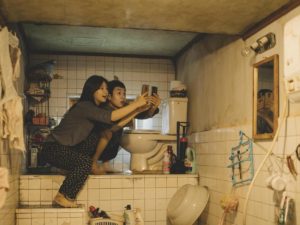
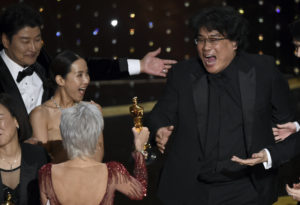
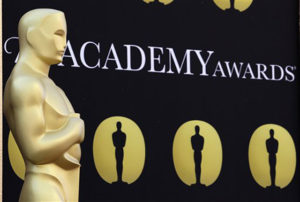
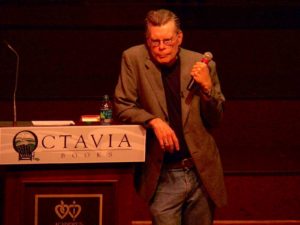
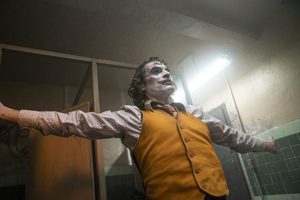
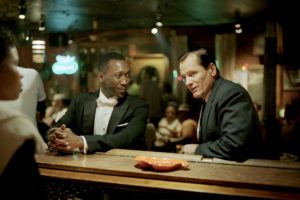
You need to be a supporter to comment.
There are currently no responses to this article.
Be the first to respond.